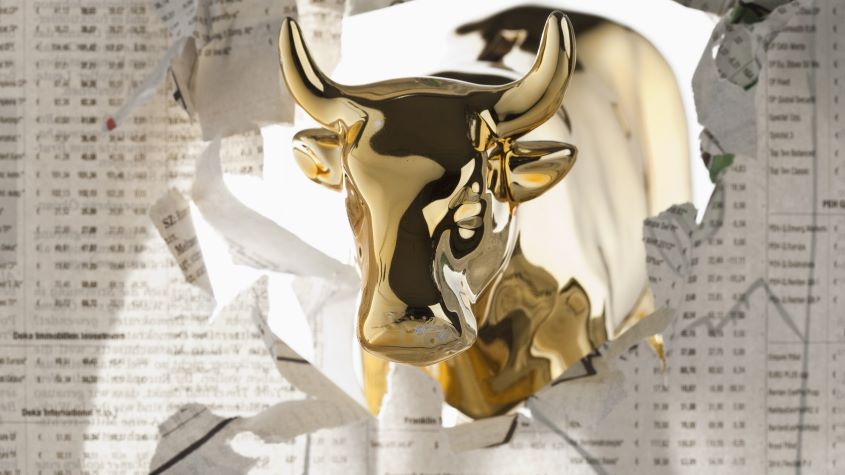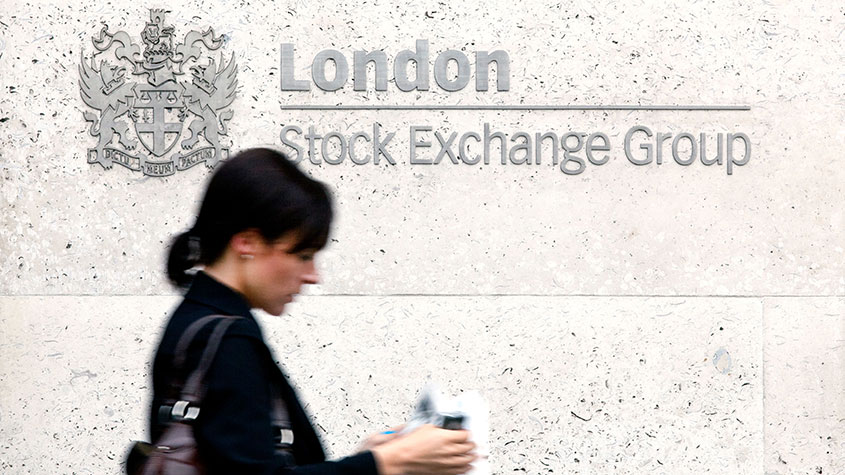Which stockmarkets look cheap now?
We’re always telling you to buy when assets are cheap. So are any global markets looking appealing yet?


Get the latest financial news, insights and expert analysis from our award-winning MoneyWeek team, to help you understand what really matters when it comes to your finances.
You are now subscribed
Your newsletter sign-up was successful
Want to add more newsletters?

Twice daily
MoneyWeek
Get the latest financial news, insights and expert analysis from our award-winning MoneyWeek team, to help you understand what really matters when it comes to your finances.

Four times a week
Look After My Bills
Sign up to our free money-saving newsletter, filled with the latest news and expert advice to help you find the best tips and deals for managing your bills. Start saving today!
At MoneyWeek, we’re always telling you to buy assets when they’re cheap. Over the past six months or so, the majority of markets have fallen a great deal, with plenty sitting in bear-market territory (down 20% or more). So the obvious question now is: are there any bargains?
Clearly, a fall in price alone does not mean a market is cheap. If a fast-growing stock suddenly warns that its growth has fallen off a cliff, it’s share price will fall. But that doesn’t mean it has become cheaper – it merely reflects the company’s diminished prospects. So you need to look at valuations.
Conveniently enough, fund manager Meb Faber of Cambria Investment Management has just put out his latest update on cyclically adjusted price/earnings ratios (CAPE) for global equity markets. CAPE is one of our favourite long-term valuation measures. It’s explained below, but in short, the lower the number, the cheaper the market.
MoneyWeek
Subscribe to MoneyWeek today and get your first six magazine issues absolutely FREE

Sign up to Money Morning
Don't miss the latest investment and personal finances news, market analysis, plus money-saving tips with our free twice-daily newsletter
Don't miss the latest investment and personal finances news, market analysis, plus money-saving tips with our free twice-daily newsletter
One thing is clear – most markets have indeed got a lot cheaper since the start of 2022. The median average CAPE was 18 in January; now it’s 15. The median CAPE on the quartile of least expensive markets has fallen from 14 to ten, while the quartile of most overpriced markets are looking more reasonable, with January’s median CAPE of 32 falling to 25 now.
In terms of the markets likely to be of most interest, the UK was already relatively cheap in January on a CAPE of 15.9. It has held up somewhat better than many of its peers but is now even cheaper at 14.6. The US by contrast, while considerably cheaper than it was, remains one of the world’s most expensive markets, with its CAPE falling from 38.8 to 28 (only India and Denmark are comparably expensive).
At the “cheap” end of the scale, three markets trade on a CAPE of less than ten: Poland, Egypt and Turkey. All three were also among the cheapest markets in January. Other notable cheap markets include Singapore, Chile, Brazil and Spain. You can use exchange-traded funds (ETFs) to get access to most of these markets, such as the iShares MSCI Poland UCITS ETF (LSE: SPOL). The strategy is to buy a mix of the cheapest markets on the principle of “reversion to the mean” – the idea that historically cheap markets will return to more “normal” valuations.
Of course, just because a market is cheap doesn’t mean it can’t get cheaper. The cheapest market in January, on a CAPE of 8.1, was Russia. The latest update doesn’t list Russia because it’s uninvestable. This is why diversification is critical – it’s an example to bear in mind before putting money into Turkey or Egypt, say.
Get the latest financial news, insights and expert analysis from our award-winning MoneyWeek team, to help you understand what really matters when it comes to your finances.

-
 How a ‘great view’ from your home can boost its value by 35%
How a ‘great view’ from your home can boost its value by 35%A house that comes with a picturesque backdrop could add tens of thousands of pounds to its asking price – but how does each region compare?
-
 What is a care fees annuity and how much does it cost?
What is a care fees annuity and how much does it cost?How we will be cared for in our later years – and how much we are willing to pay for it – are conversations best had as early as possible. One option to cover the cost is a care fees annuity. We look at the pros and cons.
-
 Is it different this time for Japanese stocks?
Is it different this time for Japanese stocks?Analysis Nikkei 225 Index has jumped 19.8% this year, and there are signs the rally could continue.
-
 As China reopens, why pick an income strategy?
As China reopens, why pick an income strategy?Advertisement Feature Yoojeong Oh, Investment Manager, abrdn Asian Income Fund Limited
-
 Is Japan the best market to invest in now?
Is Japan the best market to invest in now?Opinion Japan puts Western economies to shame and offers good value for both equity and bond investors, says Max King.
-
 The highest yielding S&P 500 Dividend Aristocrats
The highest yielding S&P 500 Dividend AristocratsTips Dividends are a key component of investment returns in the long-term. A portfolio of dividend aristocrats is a great way to build wealth and a sustainable income stream.
-
 2023 will be a bumper year for stocks. Here’s how to play the rally
2023 will be a bumper year for stocks. Here’s how to play the rallyTips Dominic Frisby explains why he thinks the market rally could have further to run in 2023 despite macroeconomic headwinds
-
 China’s post-covid investment boom off to a slow start. Should you still invest in China?
China’s post-covid investment boom off to a slow start. Should you still invest in China?Advice Investors are no longer bullish on the China shop but the gloomy consensus on Beijing’s economy might be unfair. Should you invest in China?
-
 Stock market crash? This time it’s (slightly) different
Stock market crash? This time it’s (slightly) differentOpinion The bears expecting a stock market crash have got it wrong, says Max King.
-
 3 UK shares to buy yielding up to 17%
3 UK shares to buy yielding up to 17%Tips 3 UK shares top stocks to buy now, according to Alex Harvey of Momentum Global Investment Management.